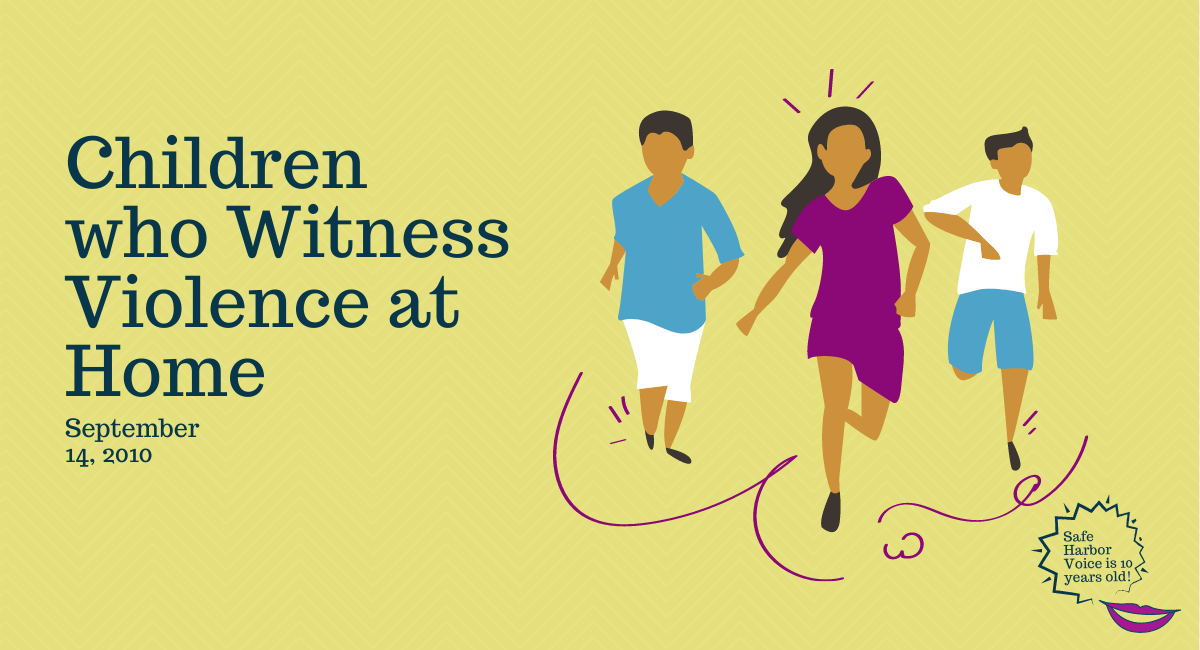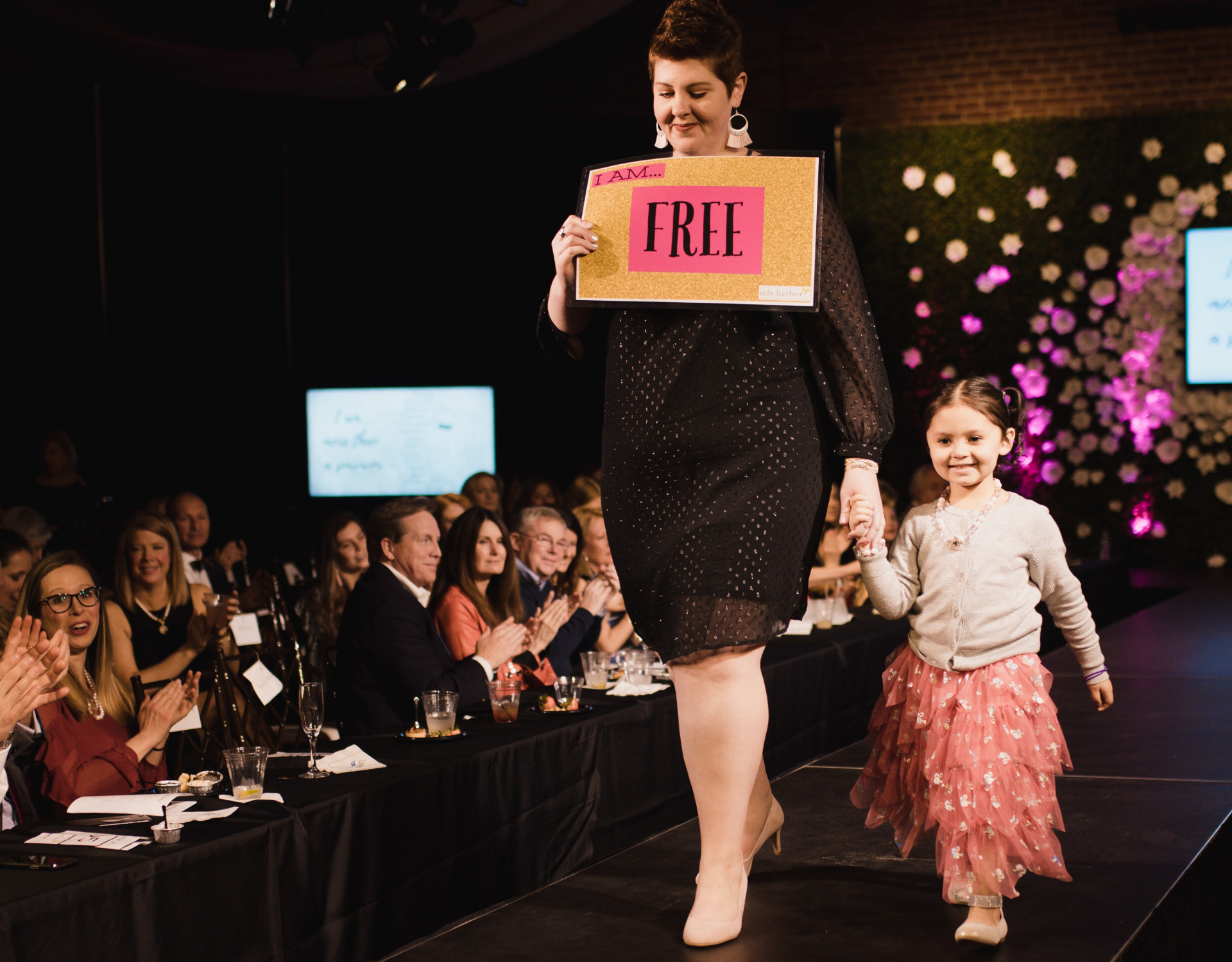By Leesa Plumblee, Shelter Counselor, Safe Harbor
“In a survey of 4,000 adults, witnessing marital violence as a child was the major risk factor predicting which adolescent girls would grow up to be domestic abuse victims.” I obtained this statistic when I attended a training this year regarding the impact of family violence on adolescent witnesses by David Pelcovitz, PhD. This statistic explains the great importance of providing therapy for children who witness domestic violence in their homes. These are the children that I have the pleasure to work with each day in our Safe Harbor shelters.
Children who have been exposed to domestic violence may exhibit signs of low self-esteem, emotional or behavioral problems, feelings of guilt or responsibility, or be at high risk for drug/alcohol abuse. These are just a few of the common characteristics of children who are exposed to family violence. Children are victims too. Many times, children who have been exposed to violence carry these characteristics with them into adulthood, because they have never been taught healthy skills for dealing with their feelings or for resolving conflicts.
One particular story stands out in my mind. Earlier this year, 14-year-old “Billy” came to one of our Safe Harbor shelters with his mother. Billy had witnessed his mother being abused all of his life. Billy had a hard time concentrating in school and had difficulty communicating with his mom from day-to-day. One day, Billy and I were talking about his favorite things to do. He said that watching TV was one of those things. He said that Phineas and Ferb was his favorite show, because they can make inventions out of anything. Billy said that he wanted to be an inventor when he grew up. I then asked him what the first thing he would invent would be and his response was a “time machine”. When asked why he would build a “time machine”, he said, “I would build a time machine so that I could go back to when I was four years old and fix everything in my life.” Billy was yearning for change; he wanted a new life and a fresh start.
This desire for change is common for all our clients and children who come to Safe Harbor. The emotional scars of witnessing DV can affect these children throughout their lives. Domestic Violence is often an intergenerational cycle of violence, and Safe Harbor can be a place where this cycle is broken. Statistically, boys who witness domestic violence are 10 times as likely to abuse their partners as adults, and girls are at greater risk for remaining in abusive relationships as adults. Sometimes, a mother might be hesitant to expose her children to life in a “shelter”. But, for children who have been living in a violent home, Safe Harbor can bring a sense of security and stability that they may have never before experienced. In the future, Safe Harbor hopes to be able to increase our direct therapy services for children into a comprehensive program, so that each child who has witnessed domestic abuse can receive the support they need to break the cycle of violence and to have a future filled with hope, with peace.





